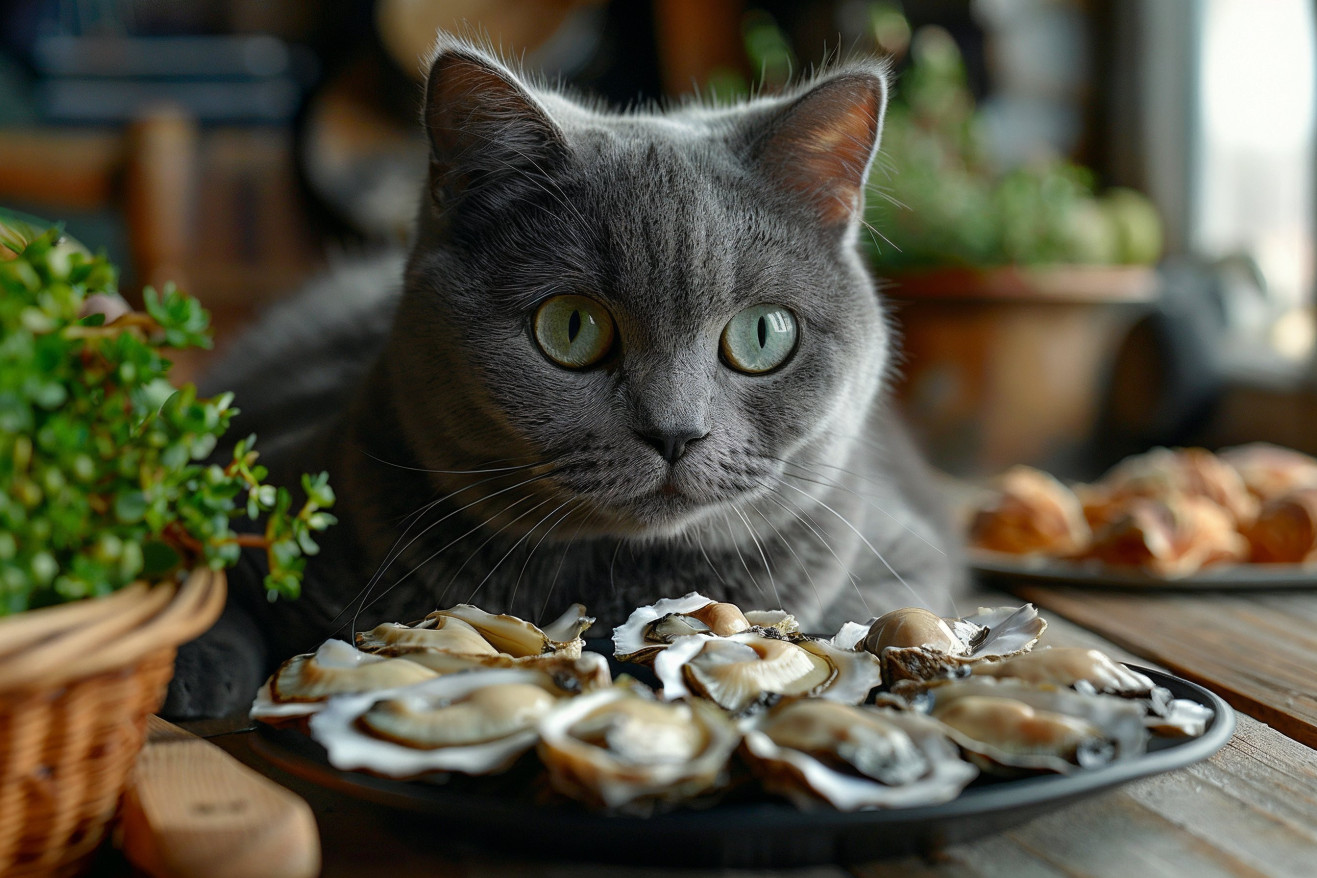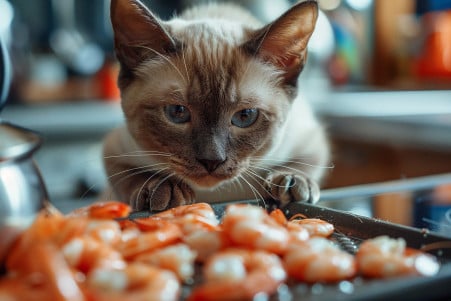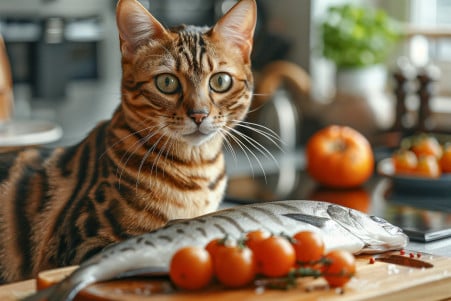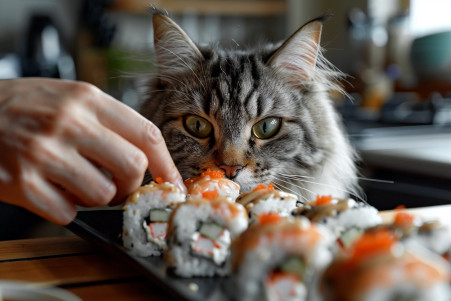Can Cats Have Oysters? A Vet-Approved Answer
14 May 2024 • Updated 14 May 2024

Even if you're a cat owner who loves seafood, you probably haven't thought about giving your cat oysters. However, the question of can cats have oysters is more complicated than you might think and involves a number of factors including nutritional requirements, potential nutritional hazards, and what it means to be a responsible pet owner. The short answer is that while cats can have oysters as an occasional treat, they're not a good idea to feed to your cat regularly. This is because while oysters do have some nutritional value for cats, including protein, omega-3 fatty acids, and certain minerals, there are also a number of potential toxins, choking hazards, and nutritional imbalances that outweigh the benefits of feeding them to your cat.
To answer this question, we'll look at what veterinary professionals have to say, as well as research on feline nutrition and case studies that have been done on the impact of feeding cats oysters and other human foods. By the end of this article, you should have a good understanding of the topic and be able to decide whether or not you want to give your cat oysters as a treat or avoid them entirely to ensure your cat's health and well-being.
Can cats eat oysters?
Risks of Giving Oysters to Cats
Raw oysters can be contaminated with bacteria such as Vibrio vulnificus, which can cause severe food poisoning in cats, resulting in symptoms such as diarrhea, vomiting, and fever according to Pet Poison Helpline. Oyster shells are also a choking hazard and can cause digestive obstructions or lacerations if swallowed, notes VCA Animal Hospitals.
In addition, oysters are high in sodium, which can cause electrolyte imbalances and other issues such as high blood pressure and kidney problems in cats. Cats can also be allergic to shellfish like oysters, which can cause symptoms such as vomiting, diarrhea, and skin problems. Oysters can also throw off the nutritional balance of a cat's diet, potentially leading to deficiencies or excesses that could harm their health according to CatsCuddle.
Given the potential for bacterial contamination, obstructions, sodium toxicity, and allergic reactions, it's important to be very careful about giving cats oysters as an occasional treat. A balanced, species-appropriate diet is important for a cat's health.
Nutritional Considerations: Potential Benefits and Drawbacks
Oysters are a source of high-quality protein, which is important for cats as obligate carnivores. They also have omega-3 fatty acids that can help with a cat's skin, fur, and overall health. Oysters are also packed with vitamins and minerals like vitamin B12, zinc, and iron that can be helpful in small amounts.
That said, cats can get these nutrients from other places like commercial cat food and supplements. Therefore, the potential benefits of oysters may not outweigh the potential harm, especially when you take into account a cat's unique dietary requirements and allergies.
How to Be a Good Pet Owner: Safely Introducing New Foods
Whenever you introduce a new food of any kind, including human foods like oysters, it’s important to do so slowly and in moderation to prevent digestive upset. PetMD suggests that you start by adding a small amount of the new food to your cat’s regular diet and gradually increase the amount over the course of a few days or weeks.
In addition, make sure to watch your cat for signs of an allergic reaction, vomiting, diarrhea, or other negative side effects. If you notice any of these symptoms, stop feeding your cat the new food immediately. Hill’s Pet recommends that a small amount of canned food can be used to entice cats to eat a new food, but you should be sure to subtract the calories from the rest of their daily intake to prevent overfeeding.
It’s important to talk to your vet before making any major changes to your cat’s diet, especially if your cat has any health issues or food sensitivities. As We Are All About Cats notes, good pet owners will make sure to feed their cats a balanced, species-appropriate diet and avoid feeding them foods that could be toxic.
Healthy Human Foods That Are Safe for Cats
While oysters are not on the list, there are a number of human foods that are safe for cats to eat in small amounts as an occasional treat. According to PetMD, cooked, unseasoned lean meats like chicken, turkey, and fish are great sources of protein for cats. In addition, small amounts of cooked, pureed vegetables like pumpkin, broccoli, and carrots can offer fiber and other nutrients that are good for cats, according to SplootVets.
Some fruits like bananas, blueberries, and watermelon can be given as treats, but they should be fed in moderation because of their sugar content, says BeChewy. It’s important to stay away from toxic foods like onions, garlic, grapes, chocolate, and raw meat, which can be toxic and even deadly to cats, according to PetMD.
Conclusion: Make Sure Your Cat's Health and Well-Being Come First
While oysters may have some nutritional value, the risks of feeding them to cats, including contamination, choking, and dietary imbalances, make it not worth it. Cat owners should instead make sure they are feeding their cats a healthy, balanced diet that is appropriate for their species and made up mostly of high-quality commercial cat food.
While occasional treats, including some human foods like cooked lean meats and certain fruits and vegetables, are okay in moderation, they should never be a substitute for a cat's regular diet. Make sure to talk to a vet and watch a cat's response to any new foods to make sure they are safe and healthy.


